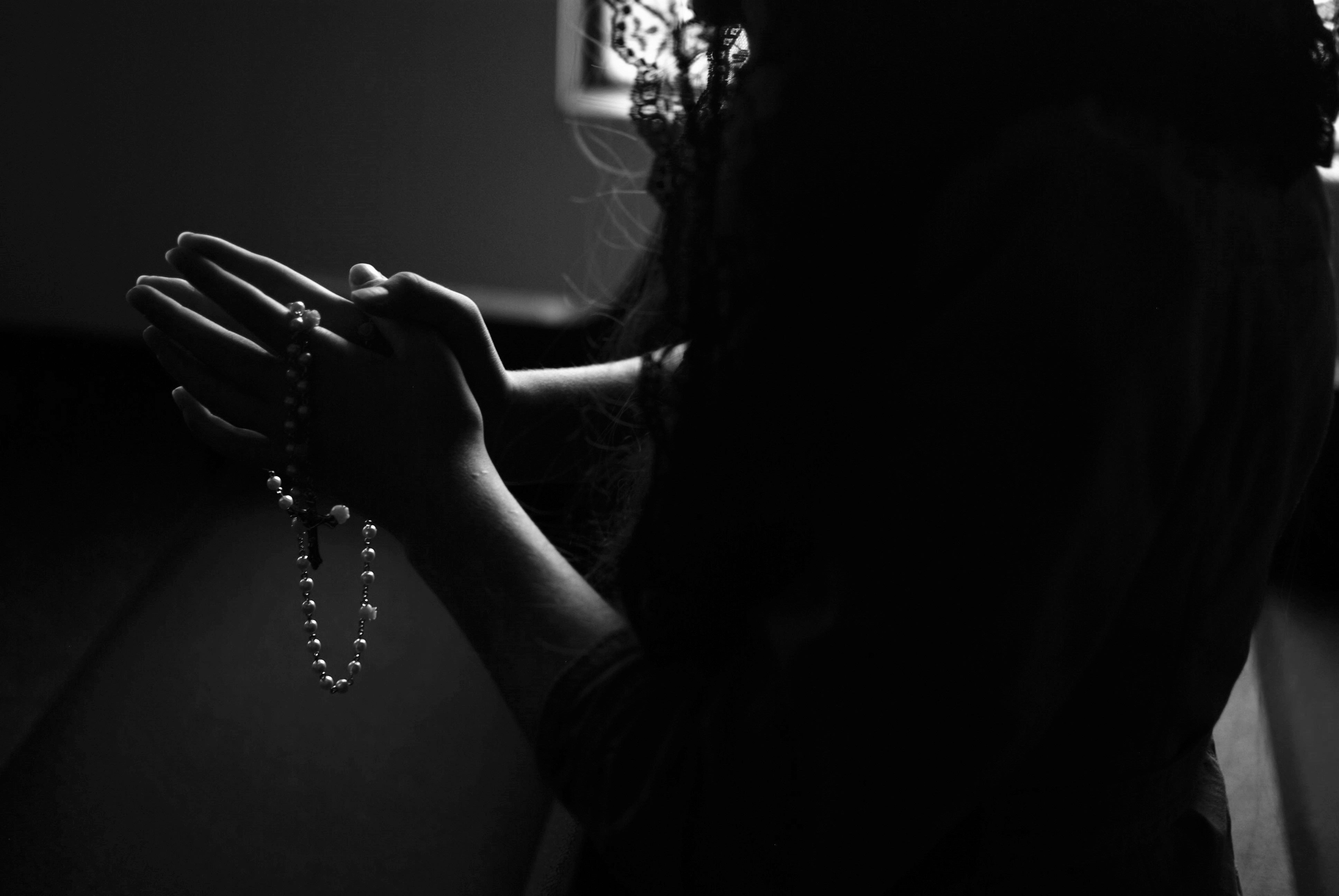Lenten Reads: On Kristin Lavransdatter’s Repentance

I first encountered Kristin Lavransdatter the summer my daughter was born. It was my final pregnancy; my age got the better of me, resulting in a painful and frustrating third trimester. I began Book 2, The Wife, during the final weeks of pregnancy between bouts of prodromal labor. I would pace the floor, contractions increasing in frequency and intensity, and just when they would reach regular five-minute intervals and I began eyeing my hospital bag, the pains would suddenly cease. This cycle lasted for four weeks. Labor is one thing; fruitless pain is another, yet both are part of motherhood. The Kristin Lavransdatter trilogy is a story of womanhood. On a deeper level, however, the books are an exploration of the human experience of being caught in a cycle of sin, in the penitential equivalent of prodromal labor: repentance that looks and feels real, time and time again, but stops short of bringing forth new life.
In The Wreath, we meet the protagonist as a beautiful and innocent child in medieval Norway. Headstrong and willfully naïve, she rejects the protection of her enviable father, the devout and virtuous Lavrans. She plunges headfirst into a sexual relationship with the handsome and roguish Erlend. Her sins are the sins of the young – concerned with being caught, and thoughtless of long-term consequences. In her desire, she conceives and gives birth to sin; in the second book, The Wife, her sin has become fully grown. She is faced with a life heavy with the ramifications of having married a man whom she loves not wisely, but too well.
The trilogy is beloved by many, but some protest that Kristin is just too annoying. Kristin is a bit annoying. Her histrionic tendencies would be unpalatable in the hands of a lesser writer. But ultimately, she is annoying because she is a sinner, and sinners are annoying. I feel a similar annoyance with the Israelites when once again I read the refrain, “But they hardened their hearts against the Lord their God and chased after many idols.” We wonder why they can’t just get it right for once. She is annoying because she is a mirror. On the surface, I am nothing like Kristin. But underneath her temperament, her culture, and the specificities of her sinfulness, it is a human story of a woman with a vitiated nature. To this, I deeply relate. Her willing unwillingness is the story of every sinner who has been grieved by her sin.
I am reminded of an anecdote recounted by an elderly Benedictine priest. Another priest confronted him with the full weight of his many sins and failings. He affirmed that he knew the brother confronting him (albeit immaturely) was right. The younger brother asked if he knew these things to be true, why did he not change? “I don’t know how,” was his haunting response. “If I knew how to change, I would have done it by now.”
Kristin similarly does not know how to change. She repents and does her penance. She keeps the fasts and the feasts and attends mass and prayers. But she does not forgive. She takes the legitimate harm that Erlend has done to her and clings to it, treasuring it in her heart. She bemoans that she knowingly keeps count of every way in which he has wronged her. While in many ways pursuing a life of piety, she nourishes her soul in bitterness. Of her sinfulness, Sigrid Undset writes,
For in her soul sin continued to exist, like the roots of a weed intertwined in the soil. It no longer blossomed or flared up or smelled fragrant, but it was still there in the soil, pale and strong and alive. In spite of all the tenderness that welled up inside her when she saw her husband’s despair, she didn’t have the will to silence the inner voice that asked, hurt and embittered: How can you speak that way to me?1
No matter how happy the marriage is, every married person knows the struggle to release a fistful of grievances. We forget what we ought to remember and remember what we ought to forget.
A wise woman once told me that we marry to our own level of brokenness. This is the lesson that I long for Kristin to learn in the final book, The Cross. She is no less of a broken human than Erlend, she is only broken in different ways. But I do not know yet what will become of her. After three trips through the first two books, I am only now reading the third book which has lain by my bed for seven years. Each time before I meant to read them all, but I just needed a break. As an empathetic reader, it is painful to watch her trapped. I want to see Kristin, as she grows older, at last figure it out and get it right. A wiser desire is for the repentance modeled by Paul whose grief over sin is mingled with rejoicing. “Wretched man that I am! Who will deliver me from this body of death? Thanks be to God through Jesus Christ our Lord!” That would be a story worthy of the cross.
1 Sigrid Undset, Kristin Lavrandsdatter II: The Wife, trans. Tiina Nunnally (New York, N.Y., U.S.A.: Penguin Books, 1999), 307.
For thoughtful conversation about these (and many other) books, check out the Close Reads Podcast hosted by Goldberry Books.
Rachel Woodham
Rachel Woodham has a BA in Russian Language and Literature and is a graduate student of Great Books at Harrison Middleton University. A classical educator for the last decade, she now homeschools her three all-time favorite students.










